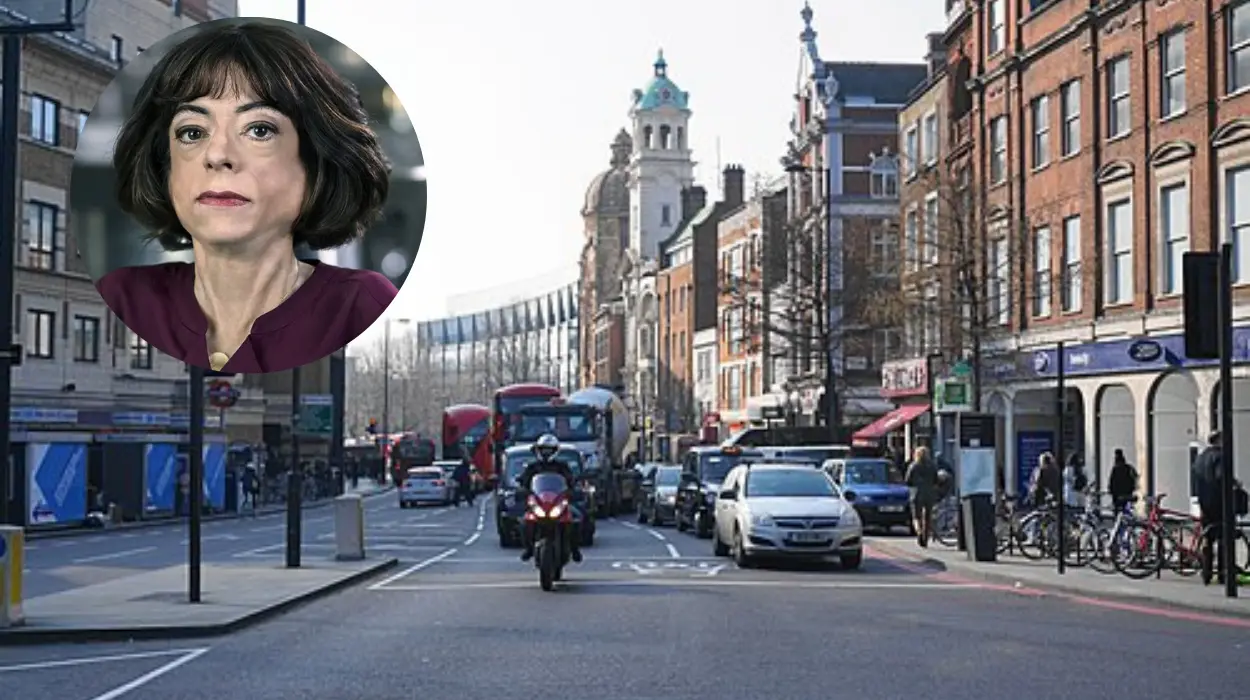Islington (Parliament Politics Magazine) – A TV actor joined campaigners outside an MP’s surgery in Islington to protest against cuts to disability benefits, highlighting the impact on vulnerable residents.
As she joined dozens of demonstrators outside the Town Hall on Saturday to protest Labour’s welfare cuts, an actor said that the disabled community is living in “fear.”
Liz Carr, who is well-known for playing Clarissa in Silent Witness, was one of the persons who opposed Labour’s proposal to reduce disabled people’s personal independence payment (PIP).
She said:
“I’m an Islington resident who feels strongly that I want my MP, who is Emily Thornberry, and also my Labour council to know that there is huge opposition to the proposed benefit cuts that are being discussed and hopefully don’t go through.
The fear that exists in my disability community is so great that it felt important to be here at this protest today.”
The Office for Budget Responsibility estimates that the cuts will impact about 800,000 individuals, while the Labour government claims that they will motivate people to return to work.
Ms Carr said:
“They’re being really disingenuous. They’re making it quite complicated, and actually a lot of the benefits will impact on disabled people who are in work. This is not about disabled people who can’t work.”
She added:
“I have social care support as a disabled person to employ personal assistants, I get PIP money because I need support to get to work, for example.
Those extra costs, access to work, that’s a support for those of us in employment. All of those things are being threatened.”
The actor told the Tribune how the language used by the Labour Party was making disabled people feel like a “burden”.
She said:
“What I’m seeing happening more than ever is this creation of the deserving and the undeserving poor, and it devastates me that we are seeing that under a Labour government.
I think it’s very useful in the media to use words like ‘scroungers’ and ‘handouts’.”
She added that these are not ‘handouts’, these are entitlements that people have as an acknowledgement of the extra costs that are incurred as a result of being a disabled person, because we live in an inaccessible society, or because we do have extra needs or requirements.
He would not be doing the job that he does if it wasn’t for extra support.
Emily Thornberry, who promised constituents in 2023 that a Labour government would establish a “supportive and compassionate welfare system” that “is designed to support disabled people not just to survive, but thrive,” was called upon by protesters to speak out against the cuts, claiming that Labour was failing the most vulnerable members of society.
Inequalities are predicted to worsen as a result of disproportionately impacted minority communities, older women from religious minorities, and LGBTQI+ people—who already experience systemic discrimination and a higher frequency of disabilities.
The demonstration was planned in reaction to the £5 billion in welfare changes that Work and Pensions Secretary Liz Kendall had proposed. These cuts included lowering eligibility for the Personal Independence Payment (PIP) and reducing the health component of Universal Credit for new claimants.
The actor emphasized that the disabled population is living in “fear” as a result of these reforms, which are already having an effect on mental health and putting many disabled people at risk of losing their independence and fundamental human rights.
Disabled People Against Cuts (DPAC) and other organizations backed the demonstration, highlighting worries that the cuts will create additional misery, force hundreds of thousands into poverty, and result in more “benefit deaths.”
Asked what her message to the government is, Ms Carr said:
“Tax the rich, don’t be so afraid, you’re just so ‘let’s please the people who keep you in power’. Who are you really there for? If you’re there for ambition and for your own individualism, which I think you are, then fine.
But not every MP is, I think. I think there are some brilliant MPs, some brilliant Labour MPs as well. Do the job for which you were originally elected to do.
And that is to look after you constituents, all of them – rich and poor, disabled and non-disabled – and stop scapegoating disabled people and putting them in poverty, and at risk.”
Islington South MP Emily Thornberry said that they need a welfare system that supports people back into work, helps those who can’t work and is financially sustainable. Unfortunately, their current system it’s not achieving any of this.
The welfare system needs major reform, but any changes would need to be fair.
She has listened to the concerns of many of my constituents and will be sharing these with the minister.
What impact do the disability benefit cuts have on the Islington community?
By 2029–2030, it is estimated that over three million families will lose an average of £1,720 annually, with some disabled individuals seeing losses of up to £4,500 annually.
An estimated 700,000 additional disabled households will fall into poverty as a result, making already difficult financial circumstances worse because of the increased expenses of living with a disability.
Leaders of health trusts and social workers caution that budget cuts will put more strain on mental health and social care services.
While local authorities experience funding shortages as care contributions decline, reduced benefits may cause disabled persons to forego necessary care because of economic concerns. It is anticipated that mental health issues may deteriorate as a result of increasing stress, loneliness, and diminished independence.


